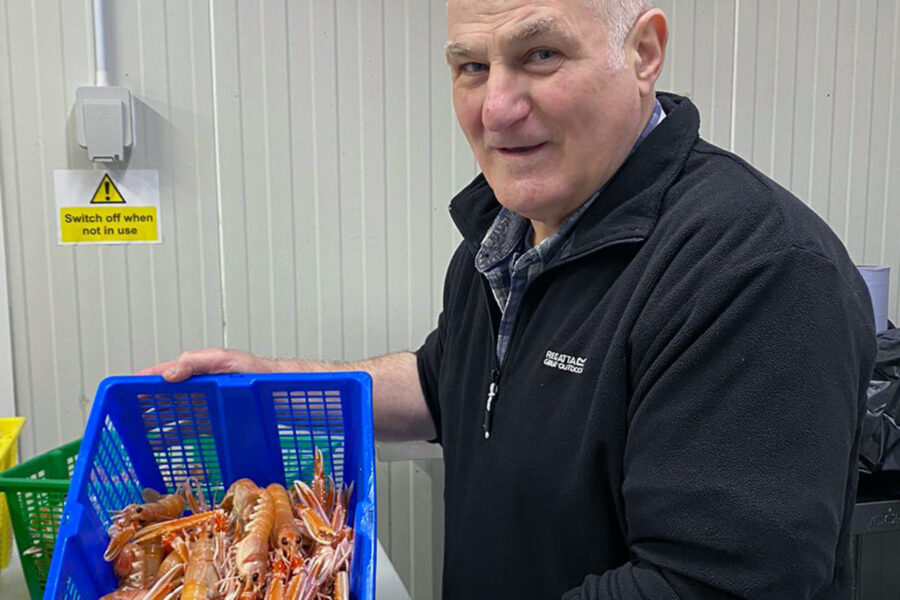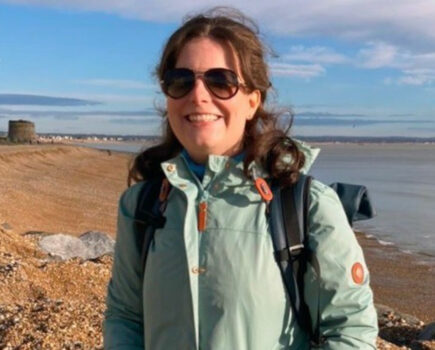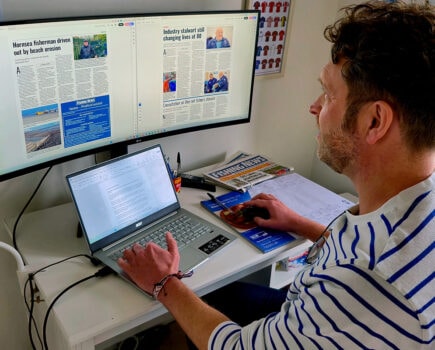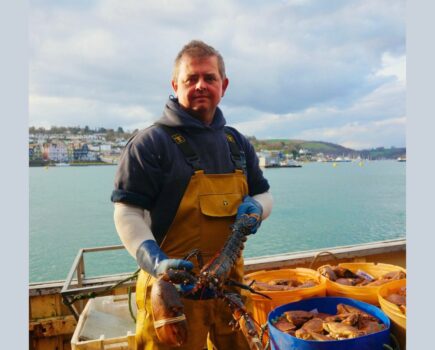“My father was a fish merchant and haulier – that’s how I got involved in the industry,” Ronnie Scott, founder of Stornoway-based Islander Shellfish, told Fishing News.
“I was 13 years of age when I bought my first box of fish at auction. By the age of 15, I was driving a forklift on hire to a man from the Faroe Islands. He was a big man – his nickname was John Wayne. He had his own vessels and used to cure herring on the number two pier in Stornoway.
“There was a café here called the Lido, and he used to take me over there before the start of the auction. We’d get a cup of tea and a ham roll. He said to me: “You can do a lot of work for me.” After working with him for my first full season, I bought my first car.”
Despite the success of his early ventures into the industry, Ronnie career’s initially took a different path.
“I’d always liked the industry, but I served my time as a mechanic. My father had his own trucks, transporting fish away to the main ports on the east coast, and down to Grimsby and Fleetwood. What that finished, I went to work for Frank Morrison and Sons – a haulier for herring, sandeel and mackerel.
“I then went to work in an oil yard. However, in 1988 the yard closed, and everyone was out of work – so I started this business up.”
Family-run Islander Shellfish supplies fish and shellfish to both wholesale and retail markets from its purpose-built processing site in Stornoway – which doubles up as a retail shop selling to the public.
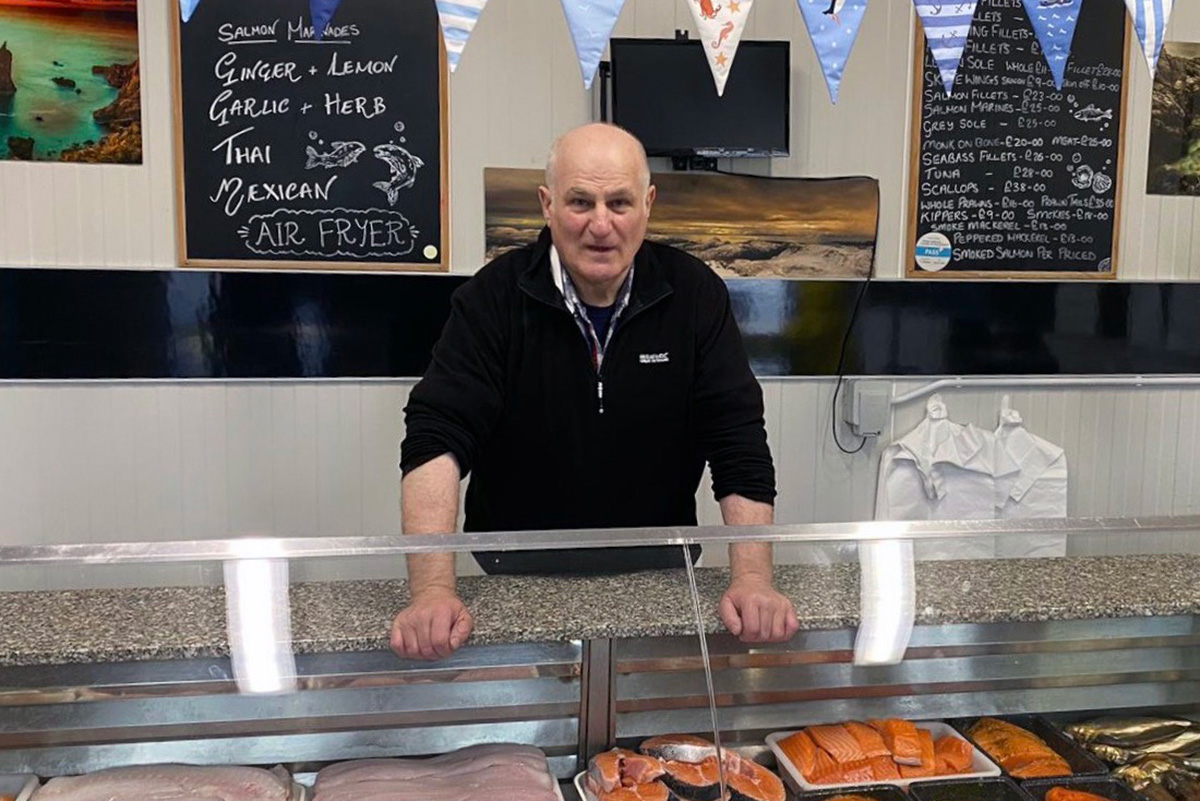
The business focuses on processing and supplying high-quality, locally sourced fish and shellfish. “On the day it’s landed, it’s bought and processed. Sometimes the boats are only out for four or five hours if the weather is bad. We may have fresh shellfish caught in the morning on our counter within a few hours, ready for people to take home. You can’t get fresher than that.”
Wherever possible, Ronnie tries to source local products, whether that’s from Stornoway’s prawn fleet, or the nearby salmon, oyster, scallop and mussel farms. However, due to demand and availability, some products have to be sourced from further afield.
“At one time Stornoway was a major herring port, but there is none landed these days. The herring we supply in our shop nowadays comes from Peterhead. We also source fish such as bass and tuna – because that’s what people want.”
A typical day for Ronnie normally begins at around 6am. “The first thing we do is get the counter set up for the retail customers. Any of the small amount of bycatch landed from the prawn vessels is prepared and ready to go.
“We are very fortunate that the boats in Stornoway normally land on a daily basis. You don’t know what the boats are going to have when they come in – but you know it is going to be quality fish.
“I’m speaking to the boats every day. If a boat gets a halibut or a turbot, they will call me up and tell me. We’ll then go down and pick it up.”
Ronnie’s next task is to focus on fulfilling orders. “We have contracts to supply local care homes, eateries, hotels and some of the visiting cruise ships. We also supply cooked shellfish for parties and functions. I have had orders this week for a small amount of cooked crabmeat, peeled prawns and cooked lobsters – all bought off boats that fish around our island – local boats, landing top-quality shellfish.
“We also provide home deliveries around Stornoway, and supply rural shops on the island. They email us their order, and we will prepare it early in the morning. It will usually be with them by about 10am to 12pm that day.”
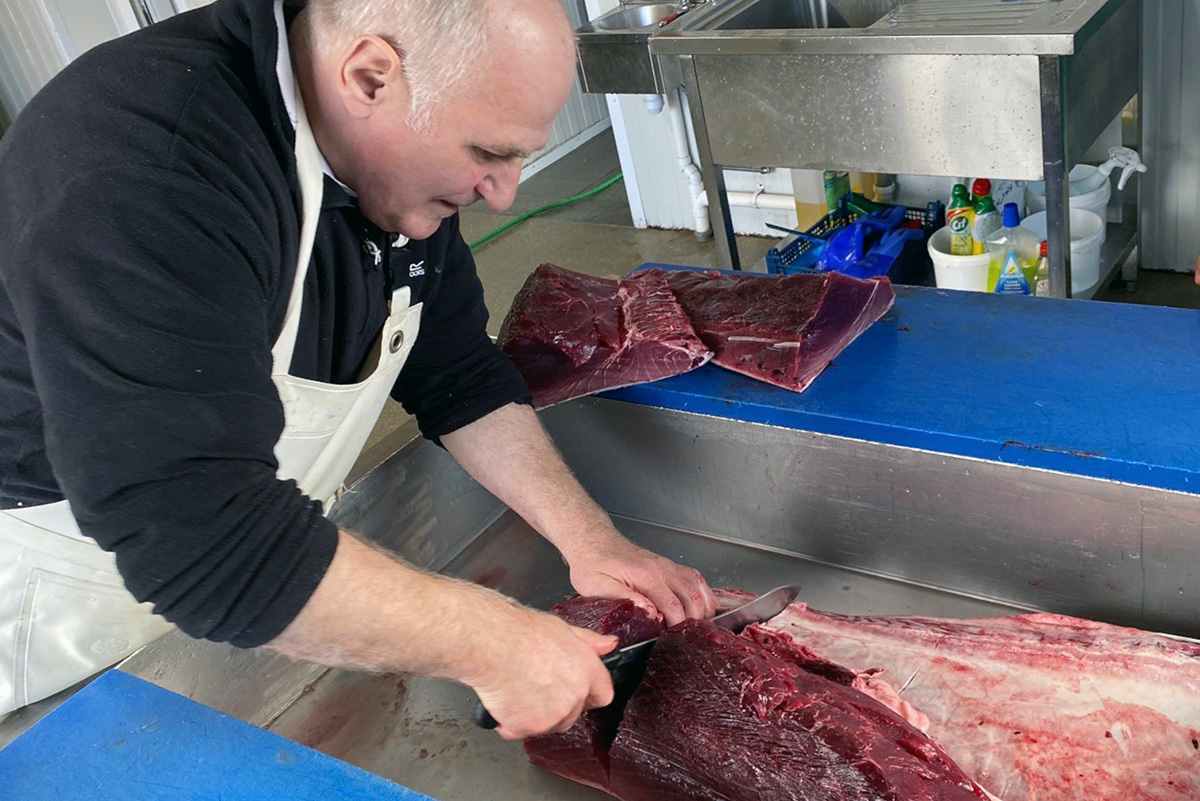
Last year, Ronnie bought, processed and sold Scotland’s first legally caught bluefin tuna, landed by Harris fisherman Angus Campbell – the trial fishery’s sole licensee. “We processed the fish, and sold it all in one day. It was an unbelievable experience – we were ever so busy.”
During the summer months, up to eight people are employed in the retail side of the business. With daughter Eilidh and her team taking care of customers, and wife Isobel looking after any administrative tasks, Ronnie focuses on the processing.
“I’m mainly in the process area. I fillet and prepare the fish myself, and get it all trimmed up for the counter. I still enjoy it. Especially when you get a nice halibut, turbot or monk.
“I will also skin any bycatch of skate. That is all done by hand, as there isn’t the volume here. It wouldn’t pay to buy a skinning machine.
“We have also just started doing ‘fish for kids’ from product off the local boats. We process the fish, and package it up. We can almost guarantee there will be no bones. That is becoming a big seller. One of the most popular fish is grey sole – the kids really like it. They also like the haddock goujons and lemon sole.”
With the shop closing at 4pm, Ronnie begins his end-of-day tasks. “The place is all cleaned down, and some of the product is prepared ready to go on the counter for the morning. The vans are all sterilised and pressure-washed, ready for the following day.
“Sometimes I’m here until 5pm – but my phone doesn’t stop until 10pm. There’s always somebody texting me. One of the guesthouses might have somebody who has come up to the island wanting lobster or prawns.
“They’ll text me – and we’ll have it all ready for them the next day.”
This story was taken from the latest issue of Fishing News. For more up-to-date and in-depth reports on the UK and Irish commercial fishing sector, subscribe to Fishing News here or buy the latest single issue for just £3.30 here.
Sign up to Fishing News’ FREE e-newsletter here.

